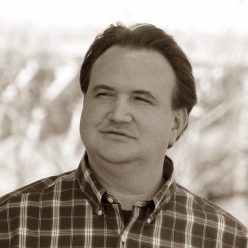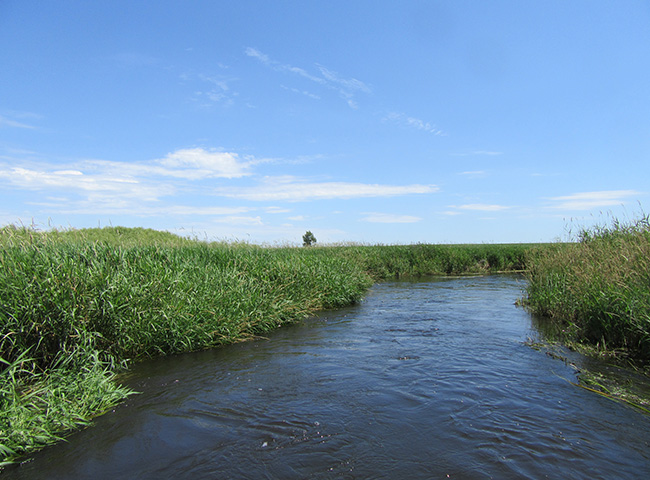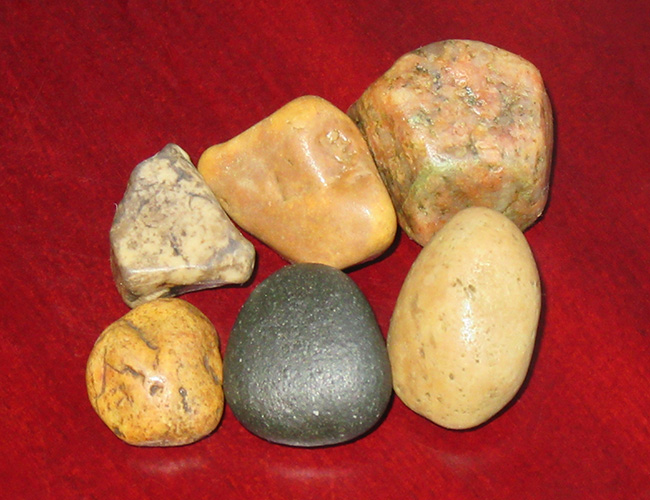Originally titled, “A Satellite for All Seasons,” I wrote this science fiction short story for a creative writing class way back in 2011 based on an idea that I had years earlier.
The Missing Twilight
It seemed odd to Jim that there was no twilight. The rest of it, he didn’t think about so much. The thin atmosphere wasn’t a problem for him, and he didn’t even mind wearing the respirator for strenuous activities. The low gravity was something that bothered others, but Jim kind of liked being able to jump so high. There was also the fact that he could no longer survive back on Earth, even if there was some way for him to return. He had resigned himself to that particular problem even before he had started out on this adventure. Yes, it was definitely the twilight that bothered him the most, the visual passing of day to night.
There was an indoor simulation of the effect, but it was not entirely pleasing to most people. For Jim it seemed almost to offend the senses. He understood, of course, the reasoning for the sun to always burn. Even though this moon had its own geothermal heat source, the surface could never maintain an adequate temperature to support human life unless the sun was blazing constantly. Such was the reality of living this far out in the solar system. This, he supposed, was just one more thing that he would have to resign himself to. Perhaps tomorrow, or the next day, he would accept it. Today, he would mourn the loss of what seemed to be the most natural thing in the world, here in this decidedly unnatural one.
––––––––––––––––––––––––––––––––––––––––
As Doctor James Pearson began his work the next morning there was a quietness among the staff. They seemed not to be their regular upbeat selves.
“Something going on today?” he asked the staff.
“Just some bad news from the first new field we’ve studied,” his lab assistant answered. “Nothing to be upset about, I’m sure.”
Jim knew the kinds of problems this news could bring if it wasn’t handled properly.
“I’d better look it over before I do anything else.” Jim was in no mood to open up a new can of worms without adequate reason. He sat down to examine the findings. Only time and persistence would tell him what he wanted to know.
Jim considered himself fortunate to be a part of this colony. In what was supposed to become a completely self-sustaining settlement, there were only so many positions available. While Jim was certain he could have lived out his days on Earth with no less satisfaction than he had now, he felt like taking part in this colonization project made him part of something bigger, something far more important than the every-day.
Besides, most agronomists on Earth rarely achieved the recognition he had received here. Agriculture on Earth has become refined to the point where there was little left to do other than to maintain the current status. Here, there was an opportunity to conduct real research. There was also the added benefit that he didn’t have to involve himself in power management or waste reclamation. Anyhow, this report he was looking over was not good news. This was the kind of news that could bring an end to a project such as this. He would have to tell the director himself.
––––––––––––––––––––––––––––––––––––––––
Director Thomas Calhoun’s office was cold and utilitarian, as was most of the compound. Built from pre-fabricated materials shipped directly from the Earth’s moon, this building and every other one in the colony was built in the same style. The walls were bare, but there was one picture frame standing on his desk, a photo of his wife and son.
“I’m not happy to hear this news of course,” said the director. “In fact, if you had brought this to me much sooner we would have had a major issue. As it is, we may have to do some adjusting, but since we’ve made it past the first checkpoint, I don’t think this will put the mission in jeopardy.”
Jim knew the checkpoint the director was referring to. A lot of important people back on Earth thought this colony wouldn’t make it past the first five years, so it had been decided that if there were any major problems within that time frame, the project would be abandoned. Now that they were in their sixth year, even this news wouldn’t mean an automatic recall.
“And you’re certain it’s a problem with the sun?” The director asked. “It couldn’t be an atmospheric disturbance?”
“Well, it could be almost anything,” Jim replied, “but the only statistically probable explanation is the sun. There just isn’t enough light to feed the plants outside of the current growing area.”
“What do you suggest?” asked the director. “Are there crops that we can grow with less light?”
“There are,” said Jim. “But they bring their own problems to the table. What we really need is another sun. The overlapping rays should be more than enough to quadruple our growing area.”
“Another sun!” The director sounded like he had just been asked for a miracle. “Why don’t you ask me to make it rain as well? Then we wouldn’t need to bother building a new irrigation system.”
“Listen Tom, I know that it wasn’t planned this early, but it has always been a long-term goal to put another reactor satellite in orbit.”
“Yes of course it was, but certainly not this soon, and then only if it were deemed absolutely necessary. We’re going to have to keep this quiet for a little while. That won’t be a problem will it?”
Jim didn’t like where this was going. Keeping a secret like this in a relatively small colony would not be easy. The reactor satellite that acted as the colony’s sun was easily the most expensive part of this expedition. The long-term plan was for the colonists to mine this moon for resources and eventually build new satellites. That way, the settlement could be completely self-sufficient and eventually expand; maybe even to other locations in the Solar System. But the director was right; that part of the mission hadn’t even gotten started yet, mainly because keeping the existing settlement going was taking up almost all of their resources.
“Well, my people aren’t going to go spreading rumors based on preliminary data,” replied Jim. “But once this is verified, which I’m certain it will be, it’ll be hard to keep quiet at that point. I really think we should be ready to meet this head on. Once word gets out about the crops, setting up a reactor satellite committee could do wonders for people’s morale.”
The director’s eyes suddenly brightened.
“What an idea Jim, a committee. They’ll spend years discussing the problem. We’ll give them a small budget for research. I’ll probably be retired before any real resources need to be allocated. But who to head such an auspicious committee?”
The director’s gaze fixed on Jim.
“Me sir?” Jim stammered. “Surely there must be someone better. After all, I’m no physicist.”
“Now Jim,” answered the director. “You don’t need to be a specialist to head up a committee. You just need to be able to organize its members and report to the council. You run a department, don’t you?”
Jim nodded.
“ It’ll be grand Jim, you’ll see. And you’ll be seeing a lot more of me.”
“Just what I always wanted.” replied Jim, only half-jokingly.
“Now I’ll need you to prepare a statement for the next council meeting. Nothing too involved, just something to show them that you’re competent. I’ll need a draft by Friday morning, and I’ll see you again then.”
Then, before Jim could protest any further, the director was walking him right out of the office door.
“So much for keeping a low profile.” Jim muttered to himself.
It was cold walking away from the director’s office, far colder than Jim liked. But then, all of the days were cold here, just one more side effect of living under a weak sun. Perhaps he would feel better tomorrow. Would the future appear brighter because he might have a hand in making it so? Jim could only hope.



